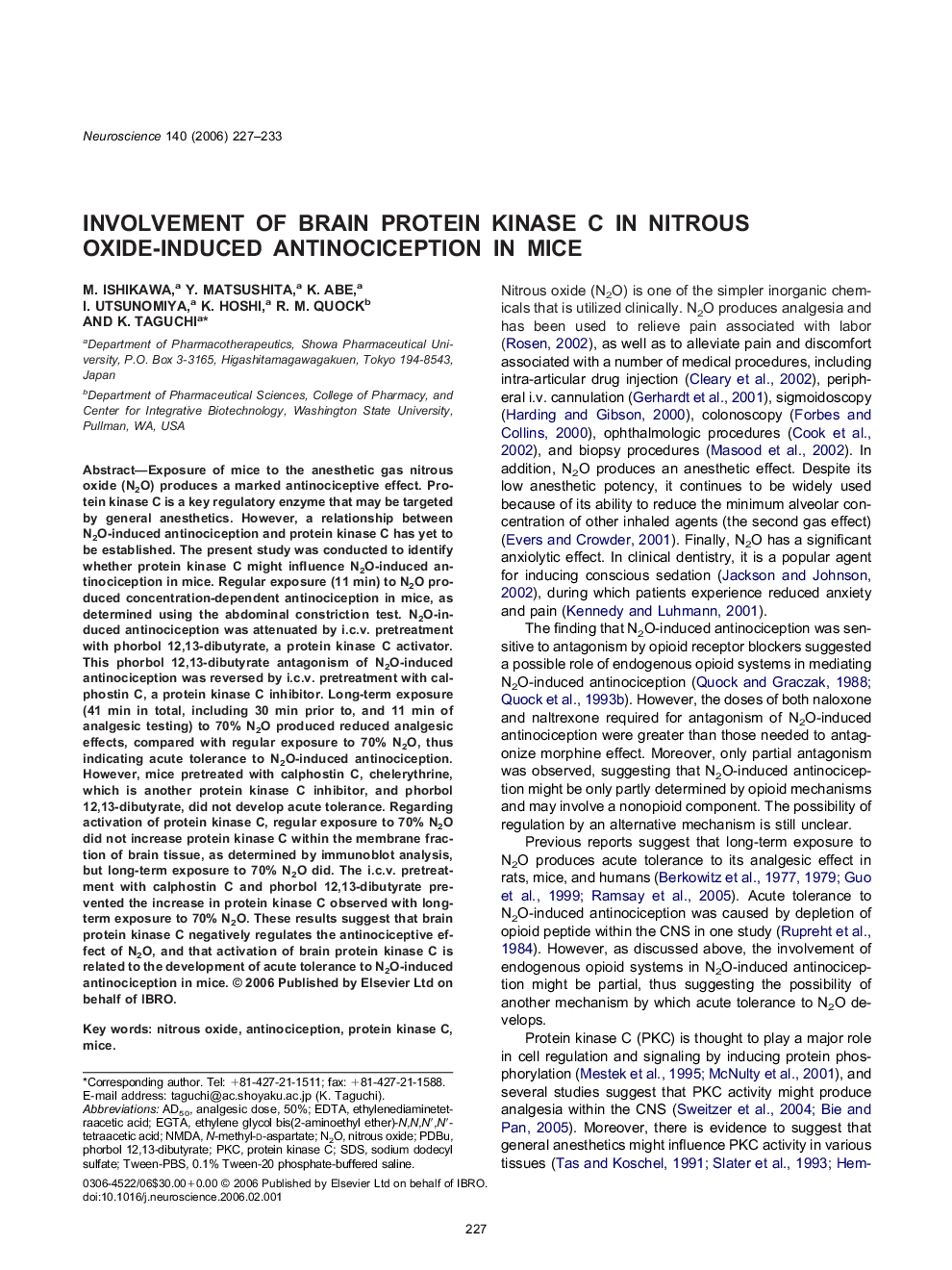| کد مقاله | کد نشریه | سال انتشار | مقاله انگلیسی | نسخه تمام متن |
|---|---|---|---|---|
| 4342819 | 1295902 | 2006 | 7 صفحه PDF | دانلود رایگان |

Exposure of mice to the anesthetic gas nitrous oxide (N2O) produces a marked antinociceptive effect. Protein kinase C is a key regulatory enzyme that may be targeted by general anesthetics. However, a relationship between N2O-induced antinociception and protein kinase C has yet to be established. The present study was conducted to identify whether protein kinase C might influence N2O-induced antinociception in mice. Regular exposure (11 min) to N2O produced concentration-dependent antinociception in mice, as determined using the abdominal constriction test. N2O-induced antinociception was attenuated by i.c.v. pretreatment with phorbol 12,13-dibutyrate, a protein kinase C activator. This phorbol 12,13-dibutyrate antagonism of N2O-induced antinociception was reversed by i.c.v. pretreatment with calphostin C, a protein kinase C inhibitor. Long-term exposure (41 min in total, including 30 min prior to, and 11 min of analgesic testing) to 70% N2O produced reduced analgesic effects, compared with regular exposure to 70% N2O, thus indicating acute tolerance to N2O-induced antinociception. However, mice pretreated with calphostin C, chelerythrine, which is another protein kinase C inhibitor, and phorbol 12,13-dibutyrate, did not develop acute tolerance. Regarding activation of protein kinase C, regular exposure to 70% N2O did not increase protein kinase C within the membrane fraction of brain tissue, as determined by immunoblot analysis, but long-term exposure to 70% N2O did. The i.c.v. pretreatment with calphostin C and phorbol 12,13-dibutyrate prevented the increase in protein kinase C observed with long-term exposure to 70% N2O. These results suggest that brain protein kinase C negatively regulates the antinociceptive effect of N2O, and that activation of brain protein kinase C is related to the development of acute tolerance to N2O-induced antinociception in mice.
Journal: Neuroscience - Volume 140, Issue 1, 2006, Pages 227–233